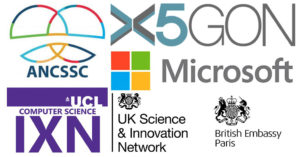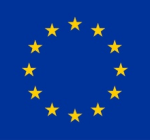The European Network for Catalysing Open Resources in Education (ENCORE+) responds to the European priorities of opening up and modernising education and training through the creation of a network that supports innovation and entrepreneurship with OER.
ENCORE+ starts from the insight that while there are viable, established strategies for OER there is no integrated European OER university-business ecosystem able to identify, catalyse and share best practices.
ENCORE+ will support the uptake of OER through business and academia by sharpening value propositions and implementation strategies for OER in higher education and the world of work.
- ENCORE+ develops a European OER innovation area by connecting stakeholder communities & fostering knowledge exchange
- ENCORE+ realises a new vision for collaboration and connection between OER repositories in a European OER Ecosystem, encouraging entrepreneurship and empowerment through OER
- ENCORE+ fosters the uptake of OER in Europe by stimulating the integration of organisational strategies for OER in business & academia, encouraging both to co-learn from implementations
- ENCORE+ establishes open, distributed & trusted community review strategies for OER and involves businesses and HEIs in dialogues on quality and innovation
- ENCORE+ engages businesses in the OER ecosystem, demonstrating the innovation potential of open content for human resource development
ENCORE+ will bring about an overarching consensus through sharing expertise across business and higher education; and will sustain community ‘Circles’ that will apply, validate and disseminate outcomes.
ENCORE+ builds the foundation for the European OER Ecosystem which can best support innovation and inclusion in education and training; improve digital skills; improve employability; and share the benefits of open online learning with as many Europeans as possible.
- Developing a validated, shared vision and roadmap for OER in Europe
- Providing a sustainable European collaboration model which responds to authentic needs
- Working with diverse stakeholders to create and pilot the ENCORE+ OER Quality Framework
- Establishing European OER Strategy Guidelines for higher education & businesses
- Establishing a well connected European OER Ecosystem of technologies & communities
ENCORE+ will engage within a strategic and sustainable way a number of relevant academia and business stakeholders. We will support their collaborative activity in line with the project five specific objectives:
- Objective 1: Setup and support a sustained and well mapped European OER stakeholders network based on well connected higher education and business communities (supported in particular through WP2).
- Objective 2: Foster collaboration and connection of OER European repositories into a European OERrepository ecosystem (WP3).
- Objective 3: Stimulate the integration of OER institutional strategies within business and academia (WP 4).
- Objective 4: Demonstrate the innovation potential of OER within business settings and promote successful OER business models (WP 6).
- Objective 5: Establish an open, distributed and highly trusted community-based OER quality review paradigm and working mechanism (WP 5).
- ICDE – International Council for Open and Distance Education, Norway
- DHBW – Baden-Wuerttemberg Cooperative State University, Germany
- OUUK – The Open University, United Kingdom
- UNIR – International University of La Rioja, Spain
- K4A – Knowledge 4 All Foundation, United Kingdom
- JOUBEL – Joubel AS, Norway
- FPM – Fondazione Politecnico di Milano, Italy
- CANVAS – Instructure Global, Norway
- DCU – Dublin City University, United Kingdom
- Work package 1 – Project Management and Administration
- Work package 2 – Building the European Network for Catalysing Open Resources in Education
- Work package 3 – Technology for the Future European OER Repository Ecosystem
- Work package 4 – Open Educational Policies and Practices for the Future OER Ecosystem
- Work package 5 – Quality for the Future European OER Ecosystem
- Work package 6 – Innovation in a European OER Ecosystem
- Work package 7 – Quality management and evaluation of the ENCORE+ implementation
- Work package 8 – Information, dissemination & exploitation














 The MicroHE project has received funding from the European Union’s Erasmus+ programme.
The MicroHE project has received funding from the European Union’s Erasmus+ programme.



